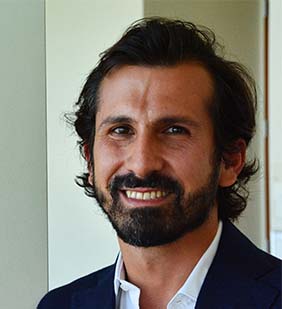
Antonio Raciti
Area of Expertise
Ecological restoration, Community planning, Community design, Planning theory, Historic preservation, Action research, Engaged scholarship
Degrees
Master in Architectural Engineering and Urban Design, University of Catania, (Catania, Italy).
Doctor of Philosophy in Urban Planning, University of Catania (Catania, Italy).
Professional Publications & Contributions
- Estrada-Martínez, L. M., Raciti, A., Reardon, K., Reyes, A., and Israel, B., (2021) Is the Scholarship of Engagement a Meaningful Approach to Foster Change in Community Development Education? Field Notes from Three Community/University Partnerships. International Journal of Community Well-Being, 1-26. https://doi.org/10.1007/s42413-021-00114-w
- Raciti, A., (2020) Whose Traditions Count? Questioning New Urbanism’s Traditional Neighborhood in the American South. Journal of Planning Education and Research, 0739456X20954532.
- Saija, L., Santo, C. A., Raciti, A., (2020), The deep roots of austere planning in Memphis, TN: is the fox guarding the hen house? International Planning Studies, 25(1), 38-51.
- Reardon, K., & Raciti, A., (2019), Advocacy Planning in the Age of Trump: An Opportunity to Influence National Urban Policy. Planning Theory & Practice, 20(4), 606-611.
- Raciti, A., (2018), Counteracting ingrained practices of community development in the US South: the case of Klondike/Smokey City in Memphis TN, USA. Tracce Urbane. Rivista Italiana Transdisciplinare di Studi Urbani, 2(3), 74-92. DOI: 10.13133/2532-6562_2.3.14294
- Raciti, A., (2018), Urban Design as a collective enterprise: the challenge of housing development in Memphis (TN, USA). Planning Practice & Research, 33(4), 392-408.
- Raciti, A. & Saija, L., (2018), From ecosystem services to ecological devices. The CoPED Summer School experience in the Simeto River Valley, Italy. Journal of Urban Management, 7(3), 161-171.
- Raciti, A., Reardon, K., Lambert-Pennington, K., (2016), The struggle for the future of public housing in Memphis, Tennessee: reflections on HUD’s Choice Neighborhoods Planning Program, Cities, 57, 6-13.
- Raciti, A. & Reardon, K., The Green Machine Mobile Food Market: an innovative response to Inner City food security, (2017), in Phillips R. and Wong C. (eds.) The Handbook of Community Well-Being, ISQOLS/Springer Handbook Series, 547-574.
- Saija, L. & Raciti, A., (2016), Migliorare senza demolire Foote Homes, (Improving without demolishing Foot Homes), in Saija L., La ricerca-azione in urbanistica (Action research in urban planning), 117-186, Franco Angeli, Metodi del Territorio, Milano.
- Raciti, A., (2015,) Building collective knowledge through design: the making of the contrada Nicolò riparian garden along the Simeto river (Sicily, Italy). Landscape Research, 41(1), 45-63.
Additional Information
Dr. Raciti is an Assistant Professor of Community Planning and Ecological Design in the newly established Department of Urban Planning and Community Development (UPCD) in the School for the Environment (SFE) at UMass Boston. His research focus is on the theory and the practice of ecological approaches to planning and design. By using an engaged approach to research, Dr. Raciti’s research agenda explores questions designed in collaboration with community groups to enhance our current understanding of social-ecological systems and develop approaches capable of improving the relationship between humans, other living communities, and their living environments. He has led and co-led numerous interdisciplinary action research projects in distressed urban and rural communities in Italy and the United States. He is currently carrying out research projects in Boston, Chelsea, and Gloucester (Massachusetts) and various municipalities in Eastern Sicily (Italy).
Dr. Raciti is the co-director of the Community Planning and Ecological Design (CoPED) Summer School, designed to bring US-based students from the environmental and social science disciplines to work with Italian students and colleagues in the Simeto River Valley of Sicily on the implementation of the cutting-edge Simeto River Agreement, a strategic plan for local development. In the UPCD Master Program, Dr. Raciti teaches courses in urban and regional design, environmental planning, and he is the primary instructor for urban planning studios, which are always designed in partnership with community-based organizations and institutions to co-generate knowledge and projects to improve local communities’ well-being.
